Catholic Habits of the Mind
By Denise Donohue, Ed.D., and Patrick Reilly
Catholic education integrally forms students in mind, body, and soul so they might know and love God and serve their fellow man. Because of this mission, Catholic education has a long tradition of excellence in harmoniously forming students’ intellects and characters through instruction in knowledge and formation in virtue. There are some well-known teachings on developing intellectual virtue in the Catholic intellectual tradition. In order to reinvigorate classroom teaching in Catholic schools and to assist teachers in delivering a deeper and more robust student formation, this paper advocates for the development of three Catholic “habits of mind” to elicit in students: thinking with faith, thinking philosophically, and seeking and valuing the transcendent.
Father Antonin Sertillanges, O.P., wrote substantively of the habits and behaviors of the Christian intellectual in his important work, The Intellectual Life.[1] St. John Henry Newman, in the 19th century, described education as cultivation of the “philosophical habit of mind,” developing greater understanding of both the parts and the whole of knowledge. And St. Thomas Aquinas in the Middle Ages reflected on the ancient Greek philosopher Aristotle’s writings on habits, both moral and intellectual.
In the Catholic paradigm—and indeed in the classical terminology that has been foundational to both secular and Christian education for more than two millennia—we call good habits “virtues” and distinguish them from vices, which are consistent bad habits. The Catechism defines virtue as “a habitual and firm disposition to do the good.”[2] The development of virtue leads a student to both human flourishing and to Heaven. Sertillanges identifies “studiousness” as the key intellectual virtue, but it is a part of temperance; indeed, all the virtues that support academic and intellectual work flow from the cardinal virtues of prudence, justice, fortitude, and temperance and the theological virtues of faith, hope, and charity.
In Catholic education, virtues overlap and occur throughout all levels and types of student formation. Learning a “pattern of intellectual behavior that leads to productive actions”[3] such as in the secular Habits of Mind program may have some utility in all schools, but a liberal education aims for much more, with even productive actions possessing an ethical dimension.[4] Catholic intellectual virtues help students do more than problem-solve; they help students seek and find the truth of a thing. In Catholic education, this inquiry into the truth ultimately leads to Truth Himself: God. This path is one that secular education cannot fully pursue. Our nature is designed to pursue truth through the inquiry of things, and in Catholic education, this truth is embodied in the person of Jesus Christ. When illuminated by God’s grace, we understand and determine the interconnection of things, and learn something about the higher causes of things.
In Catholic education, the formation of moral virtue is not only an essential part of the written curriculum[5] but is modeled and taught through the lives and witnesses of its teachers and others who exhibit virtues such as faithfulness, docility, humility, piety, gentleness, compassion, and kindness, among others. Catholic schools are all about formation in virtue, as these dispositions are considered the means of acquiring the goods of this life and the gaining of heaven. Our Lord made explicit to us in his teaching of the beatitudes the result of acquiring specific dispositions: “Blessed are the poor in spirit, for theirs is the kingdom of heaven…Blessed are they who hunger and thirst for righteousness, for they shall be satisfied…Blessed are the pure of heart, for they shall see God” (Matthew 5:3-10).
The formation of intellectual virtues aligning with a moral formation conforms to the holistic approach of Catholic education, which seeks integral education of mind, body, and soul. Catholic education forms young people with a Catholic worldview and shows them that virtue has positive real-world consequences in this life. It teaches that virtues such as prudence are applicable to intellectual, moral, and physical challenges that may come their way. Most importantly, Catholic education teaches the virtues as the way of Christ and guides the path to sainthood.
Catholic Intellectual Virtues
The Catholic intellectual tradition—developed by St. Augustine, St. Thomas Aquinas, and many others—distinguishes intellectual virtues. They focus on what one knows and how that knowledge is used, always within the framework of a moral purpose. These traditional five virtues are art, prudence, understanding, science, and wisdom. Teachers in Catholic education who employ these methods can rest assured of their soundness and heritage.
Art and prudence are considered practical virtues because they are concerned with two forms of action: making and doing. Art directs the intellect in applying certain rules or methods to make useful, practical, beautiful, and pleasing things. It is the capacity of knowing how to do something or knowing different techniques, such as knowing how to use a computer program or how to make a kite fly. Art involves applying knowledge to shape matter, whether that matter is an artistic sculpture or principles of arithmetic. Prudence directs the intellectual powers toward knowing what is best and assessing what ought to be done. It involves analyzing and evaluating the proper means of action with the direction of contributing to our long-term happiness and is the foundational intellectual virtue necessary for all the other moral virtues. According to St. Thomas, prudence is the “form” of the moral virtues, and the human passions and actions are the “matter.”[6] Thus, in any particular situation, “it is prudence that determines what the just, temperate and brave act is.”[7]
Understanding, science, and wisdom are considered speculative virtues, and these are connected by nature to man’s desire to seek and know truth. Understanding cultivates knowledge of first principles or truths that are self-evident, or that reason and logic add to our experience. This knowledge is intuitive and easily attainable, such as the law that something cannot both exist and not exist at the same time under the same conditions.[8] Science uncovers “knowledge of conclusions acquired by demonstration through causes or principles which are final in one class or other.”[9] Science, therefore, is the evident knowledge of something through demonstration. Still, it is much more. It is human reason acting upon knowledge to draw conclusions from sound premises, thereby multiplying knowledge of creation, humanity, and God. It involves the habits of careful observation, experimentation, and measurement to reach conclusions using demonstrative reasoning. Science demands evidence and properly ordered reasoning and this evidence and reasoning assist with determining a certain level of certainty about a thing. Wisdom is the knowledge of conclusions to life’s most profound questions. Its object is truth and is generally identified as the study of philosophy or metaphysics. It seeks the answers to the questions of humanity’s existence and that of the universe, such as, “Why is man the only rational creature?” and “Why are the planets ordered the way they are?” Catholic educators are called to facilitate discussion and to direct the student’s intellect toward grasping the relationship between humanity and these existential realities.
Generally, this is done through philosophical questioning and inviting students to contemplate reality in wonder and awe. Aristotle called wonder the beginning of a love of wisdom—the highest understanding of things, their first causes and principles. Wonder begins, he says, “in the first place at obvious perplexities, and then by gradual progressions raising questions about the greater matters too, e.g., about the changes of the moon and of the sun, about the stars and about the origin of the universe.”[10] Students should not stop at intellectual curiosity, which is satisfied with answers to “How” and “Why.”[11] The type of wonder desired here is a deeper, contemplative wonder that is exemplified by a full-body emotional, aesthetic, and existential response. This wonder leaves one open to the uncertainty and the mystery still evident in the experience.[12] It is at this moment that one can “step off” into the realm of faith, accepting it as a valid way of knowing, a moment in which one can revel in the first cause of all created things: God.
While there is certainly a place for wonder as curiosity in Catholic schools – in all schools –contemplative wonder does not stop with answers in the material world. As Newman says, wonder should lead reason to “ascend” above the actual fact or experience and the strictly material. It should look not only to material causes, comparisons, relationships, classification, and principles but should also evoke a sense of humility and a sense of our powerlessness and adoration before the glory of God, the author and end of all that is true, good, and beautiful. Catholic education teaches students the use and skills of reason to rise toward the transcendent. We teach students habits of reasoning that elevate thought above information and experience. Secular education leaves students hanging at the peak of ascent since it cannot jump off into the realm of religious faith. A Catholic school that teaches religion but fails to form students with skills and habits of philosophical reason is leaving students unable to contend with the issues of post-modernity, where they can quickly fall prey to ideology despite conflicts with their consciences and sense of natural law. They can have years of experiencing God’s love and mercy in Catholic education, the sacraments, and the family, but then they turn away because their inadequately formed minds cannot find God in reality, and they are lost in confusion.
St. John Henry Newman points out that while materialists can experience fascination, wonder is fully experienced when it causes us to “Rejoice with trembling”[13] and focuses not just on creation but also on the Creator. There is a depth and mystery to creation and reality and to our relationship to God, which evokes “a feeling of awe, wonder, and praise, which cannot be more suitably expressed than by the Scripture word fear; or by holy Job’s words, though he spoke in grief, and not as being possessed of a blessing. ‘Behold, I go forward, but He is not there; and backward, but I cannot perceive Him: on the left hand, where He doth work, but I cannot behold Him: He hideth Himself on the right hand, that I cannot see Him. Therefore, am I troubled at His presence; when I consider, I am afraid of Him’ [Job xxiii. 8, 9, 15].” [14]
A greater emphasis on these true Catholic intellectual and moral virtues and on the transcendent can help ensure the development of habits to assist in the pursuit of knowledge for its own sake and cultivating wisdom for human perfection in the light of faith. These are critical goals in Catholic education, which understand that human nature is oriented toward unity with God the Creator, and man’s gift of reason is intended to serve the free search for truth about God, humanity, and creation. Without an appeal to truth, man’s free will and reason lack purpose, and human dignity is not respected. Catholic intellectual virtues move beyond an emphasis on problem-solving to prepare students as useful workers and citizens. This focus is insufficient to achieve Catholic education’s goal of virtuous living and sainthood.
Additionally, Catholic educators should ensure that their curricula and course plans include but are not limited to memorization, seeking knowledge from sound testimony, identifying first principles, asking about essence, asking about causes, division, and composition of ideas, classification, analogical thinking, communicating with proper language, communicating with elegant language appropriate to the circumstances, discerning the unity of knowledge and bearing of knowledge upon other knowledge, following the methods that are proper to each academic discipline, right use of freedom in intellectual pursuits, and concern for the common good. These approaches harmonize with human nature and aid in complete human flourishing.
Catholic Habits of the Mind
Three ‘habits of mind’ are needed to build the Catholic integrity of an educational program, honor the Catholic intellectual tradition, and put students on the path of true happiness in this world and the next.
Thinking with Faith
Faith is the trust we have in something we do not see, based on the authority and credibility of the source, which is generally a person.[15] An example of human faith is to believe that Alaska exists without ever having been there based on the credibility of others and their testimony. Certitude is not personally confirmed, but the will and the intellect join to assent to the truth that Alaska is a place based on the credibility of witnesses.
Faith becomes supernatural when we are disposed to it through the sacraments and grace, and the matter is based on Divine Revelation from God Himself. Here the will and the intellect are turned toward God, the evidence being the witness of holy men and women, the prophets, the saints, the Apostles, and Jesus Christ. St. John Paul II, in his discussion of St. Paul’s Letter to the Romans, writes:
According to the Apostle, it was part of the original plan of the creation that reason should without difficulty reach beyond the sensory data to the origin of all things: the Creator. But because of the disobedience by which man and woman chose to set themselves in full and absolute autonomy in relation to the One who had created them, this ready access to God the Creator diminished. (Fides et Ratio, 1998, 22)
While we have not seen the eternal kingdom, we believe, with the supernatural help of grace through faith, that it exists, so we continue to journey toward that deeper, fuller understanding of God’s plan for us as imparted in Divine Revelation. In faith, the indivisible unity between the intellect and will is more easily discerned. St. Augustine is credited with saying, “believe so that you may understand.”[16] This is the goal of Catholic education: to open the door of faith for students to behold the transcendental realities through learning, discussion, experience, service, and sacraments. It is essential that students cultivate the intellectual and moral habits of being that predispose them to an encounter with faith through learning opportunities and discussions of the importance and validity of faith as a way of knowing.
In public education, the discussion of faith is limited. The material sciences are held up as the highest and most privileged ways of knowing, and students are taught that knowledge of truth is limited to what can be physically seen, weighed, or measured. While this is a valid way of knowing, it is not the only means of knowing.
Whereas modern society and most secular education today define truth according to consensus and experience, the Catholic educator understands that truth is the conformity of the mind and reality and that all truth proceeds from God. The human intellect is intended to be ordered to truth, and reason allows the intellect to rise above consensus and experience to better know God, His ways, and His creation.
Aquinas says that both the light of reason and the light of faith come from God and work to contribute to the understanding of Divine Revelation and ultimate truth. St. John Paul II writes:
Faith therefore has no fear of reason but seeks it out and has trust in it. Just as grace builds on nature and brings it to fulfillment, so faith builds upon and perfects reason. Illumined by faith, reason is set free from the fragility and limitations deriving from the disobedience of sin and finds the strength required to rise to the knowledge of the Triune God. (Fides et Ratio, 43)
What more fitting place to champion faith as a means of knowing than in a Catholic school? Enlightened by faith, Catholic education teaches habits that form students not only for knowing but also for apprehending the transcendental realities that give ultimate meaning to this life as souls are prepared for the next.
Thinking Philosophically
Saint John Henry Newman taught that the essence of education is cultivation of the intellect for its own sake. He argued that education should cultivate a “philosophical habit of mind” that reasons upon knowledge rather than simply accumulating information from experience and creatively expressing one’s feelings and desires. Education teaches the student to “ascend” above knowledge to new levels of understanding by the right use of reason. He wrote, “…in order to have possession of truth at all, we must have the whole truth; and no one science, no two sciences, no one family of science, nay, not even all secular science, is the whole truth…” (Discourse 4). Instead, God is “a fact encompassing, closing in upon, absorbing, every other fact conceivable.”
Reason needs to be cultivated not only as a logical tool for problem-solving but also as a means of attaining truths foundational to reality and larger than experience—as in contemplation of the natural and eternal law. Collaboration to find solutions and clear communication is necessary, but a Catholic school will want to put additional emphasis on dialectic and persuasion for the purpose of reasoning toward higher truths.
Dialectic is a discussion of seemingly conflicting things that appear to be true at the same time. It is a method of dialogue that aims to arrive at truth instead of defeating or persuading an opponent. It is associated with the Socratic method and the methods of medieval scholastics, including St. Thomas Aquinas. Educators can also teach the Topics of Invention.
The Topics of Invention are a method of classical rhetoric used to examine all aspects of a subject in the context of its circumstances, attributes, and relation to other subjects. Knowledge from an authoritative source – including the Catholic Church – is also used as a valid means of seeking the truth of a thing. Adding the habit of ‘thinking philosophically’ allows for rational dialogue and “ascending” to the higher truths of God, which ought to be the outcome of an integrated Catholic education.
Valuing and Seeking the Transcendent
Catholic education should also ensure that student thinking is oriented toward assigning value and meaning to what is being considered, and students should recognize that transcendent realities are among those things. Pope Francis has noted that:
For me, the greatest crisis of education, in the Christian perspective, is being closed to transcendence. We are closed to transcendence. It is necessary to prepare hearts for the Lord to manifest Himself, but totally, namely, in the totality of humanity, which also has this dimension of transcendence.[17]
Traditionally, in Catholic education, subjects are taught not merely as vehicles for the conveyance of content knowledge and technical skills. Catholic education helps “the pupil to assimilate skills, knowledge, intellectual methods and moral and social attitudes, all of which help to develop his personality and lead him to take his place as an active member of the community of man.”[18]
In Catholic education, the Catholic faith increases students’ understanding, and moral formation increases learning. Processes and methodologies should not thwart the opportunity for students to go beyond the pragmatic, utilitarian, and material world. Church documents are filled with discussions regarding the formative value of all education. For instance:
The Catholic teacher, therefore, cannot be content simply to present Christian values as a set of abstract objectives to be admired, even if this be done positively and with imagination; they must be presented as values which generate human attitudes, and these attitudes must be encouraged in the students. Examples of such attitudes would be these: a freedom which includes respect for others; conscientious responsibility; a sincere and constant search for truth; a calm and peaceful critical spirit; a spirit of solidarity with and service toward all other persons; a sensitivity for justice; a special awareness of being called to be positive agents of change in a society that is undergoing continuous transformation. (Lay Catholics in Schools: Witnesses to Faith, #29-30)
Catholic education focuses on the formation of the intellect, will, and soul of the student. It allows opportunities for students to ponder God’s omnipotence and love and his personal relationship with them. It is a specific charge for Catholic teachers to teach to the transcendent in a way that goes beyond abstraction, naming, listing attributes, and so forth and prepares a human soul for an encounter with real things—something secular schools cannot do.
The integral formation of the human person, which is the purpose of education, includes the development of all the human faculties of the students, together with preparation for professional life, formation of ethical and social awareness, [and] becoming aware of the transcendental, and religious education. (The Catholic School, #17)
The transcendentals of truth, beauty, and goodness can assist in determining value. Transcendentals are timeless and universal attributes of being. They are the properties inherent to all beings.[19]
The pursuit of truth, defined as the mind in accord with reality,[20] is a foundation of Catholic education and is a significant component of the Newman Society’s Catholic Curriculum Standards. From the Congregation for Catholic Education (1997) we read, “Various school subjects do not present only knowledge to be attained, but also values to be acquired and truths to be discovered. All of which demands an atmosphere characterized by the search for truth” (#14). Man, by his nature, is made to seek the truth.[21] For instance, the Catholic Curriculum Standards expect students to “Analyze how the pursuit of scientific knowledge, for utilitarian purposes alone or for the misguided manipulation of nature, thwarts the pursuit of authentic Truth and the greater glory of God.”
What is true is also beautiful. As a timeless and universal attribute of being, beauty helps evoke wonder, awe, and delight of the soul leading to philosophical and theological questions like, “How can something so beautiful exist?” “Is this beauty only meaningful to me?” “Who created all of this?” and so forth. Catholic education—with its focus on the transcendentals of truth, beauty, and goodness—already teaches wonder as more than an intellectual satisfaction; it is an invitation to think beyond creation and seek the reality – and mystery – of the wisdom of God who created all that we know and experience.
Finally, in Catholic education, we know that the true and the beautiful are also related to all that is good. A thing is “good” when it exercises the powers, activities, and capacities which perfect it. In Catholic education, we also call human action good when all components of the action are noble and virtuous. Habits of Mind tends toward some of these same ends in an aspirational sort of way, but a robust Catholic education can thoughtfully and wholly fulfill the mission of intellectual formation within its own paradigm that looks to the transcendent.
Conclusion
When choosing specific approaches to Catholic education, it is important to understand the nature of the human person and use that understanding as the foundation for any education program.[22] Humanity has been gifted with faculties that work in specific ways. Education works best when it follows a natural order and engages the student’s will and emotions in the learning endeavor. As an embodied soul, it is essential that the whole person—the intellectual, emotional, physical, and spiritual—be ordered so that students can better understand themselves as effective and flourishing human beings, made in the image and likeness of God, brothers and sisters in Christ, and heirs to the eternal kingdom.
Catholic educators interested in cultivating habits of mind might consider incorporating the intellectual and dispositional standards from the Catholic Curriculum Standards, in addition to a Catholic school’s virtue and catechetical program. Standards such as, “Evaluate how history is not a mere chronicle of human events, but rather a moral and meta-physical drama having supreme worth in the eyes of God,” and, “Display personal self-worth and dignity as a human being and as part of God’s ultimate plan of creation,” elevate a student’s thought from the here and now to the eternal.
Catholic schools choosing to highlight the transcendental concepts of truth, beauty, and goodness, which are also embedded in the Catholic Curriculum Standards, will naturally use and develop many of the intellectual behaviors appropriate to a well-formed Catholic student. The Catholic Curriculum Standards seek to form dispositions toward:
- demonstration of Catholic moral virtues;
- ardent pursuit of the truth of things and the rejection of relativism;
- value of the human body as a temple of the Holy Spirit;
- dignity of the human person and primacy of care and concern for all stages of life;
- care and concern for the environment as part of God’s creation;
- appreciation of the beauty of well-crafted prose and poetry, historical artifacts and cultures, the order of creation, and the proportion, radiance, and wholeness present within mathematics; and
- appreciation for the power of literature, the story of history, and the discoveries of science and how through interaction with them one can identify and choose the personal and collective good.
Using faithful curriculum standards, teaching the Catholic habits of mind described here, and providing a solid virtue program will help ensure a proper Catholic education program.
Denise Donohue, Ed.D., is Vice President of Educator Resources and Evaluation and Patrick Reilly is President and founder of The Cardinal Newman Society, which promotes and defends faithful Catholic education.
[1] A. D. Sertillanges The Intellectual Life (Westminster, MD: The Newman Press, 1960) at https://archive.org/details/a.d.sertillangestheintellectuallife/page/n1/mode/2up (accessed on Jan. 21, 2021).
[2] Catechism of the Catholic Church (Vatican City: Libreria Editrice Vaticana, 1993) 1803.
[3] Arthur L. Costa, “Describing the Habits of Mind,” in Arthur L. Costa and Bena Kallick (eds.), Learning and Leading with Habits of Mind (Alexandria, Va.: Association for Supervision and Curriculum Development, 2008)16. Retrieved at http://www.ascd.org/publications/books/108008/chapters/Describing-the-Habits-of-Mind.aspx (accessed on Oct. 15, 2020).
[4] St. Thomas Aquinas, Summa Theologiae, Q. 57, Art.1 at https://www.newadvent.org/summa/2057.htm (accessed on Jan. 21, 2021).
[5] See the Dominican Sisters of Mary Mother of the Eucharist, Disciple of Christ: Education in Virtue program’s list of virtues to learn in a Catholic school at https://golepress.com/welcome/education-in-virtue/ (accessed on Jan. 21, 2021).
[6] St. Thomas Aquinas, De veritate 27, 5 ad 5.
[7] Sr. Teresa Auer, O.P., Called to Happiness: Guiding Ethical Principles (Third ed.) (Nashville, Tenn.: St. Cecilia Congregation, 2013), 163.
[8] See Auer (2013) 156 for examples.
[9] See Martin Augustine Waldron, “Virtue,” The Catholic Encyclopedia Vol. 15 (New York: Robert Appleton Company, 1912) at http://www.newadvent.org/cathen/15472a.htm (accessed on Oct. 23, 2020) for definitions of the intellectual virtues.
[10] Aristotle, Metaphysics 1.982b.
[11] Anders Schinkel, “The Educational Importance of Deep Wonder” (2017), Journal of Philosophy of Education, Vol. 51, No. 2 (2017), 543.
[12] Schinkel, 544.
[13] Newman frequently references this passage from Psalm 2:11 in his works.
[14] St. John Henry Newman, “Sermon 2: Reverence, a Belief in God’s Presence” 26 at http://www.newmanreader.org/works/parochial/volume5/sermon2.html (accessed on Jan. 21, 2021).
[15] St. John Paul II, Fides et Ratio (1998) 33.
[16] Fr. David Pignato, “The Primacy of Faith and the Priority of Reason: A Justification for Public Recognition of Revealed Truth,” The Saint Anselm Journal, 12.2 (Spring 2017) 52-65.
[17] “Pope’s Q and A on the Challenges of Education,” ZENIT (Nov. 23, 2015) at https://zenit.org/2015/11/23/pope-s-q-and-a-on-the-challenges-of-education/ (accessed on Jan. 21, 2021).
[18] Sacred Congregation for Catholic Education, The Catholic School (Vatican, 1977) 39.
[19] See “Educating to Truth, Beauty and Goodness” from The Cardinal Newman Society at https://newmansociety.org/educating-to-truth-beauty-and-goodness-2/
[20] Aquinas, De Veritate, Q.1, A. 1-3; cf. Summa Theologiae, Q. 16.
[21] See Fr. Robert Spitzer, New Proofs for the Existence of God (Grand Rapids: MI.: Wm. B. Eerdmans Publishing Co, 2010) 259-266.
[22] For further reading, we recommend the following resources: Auer (2013); Luigi Guisanni, The Risk of Education: Discovering Our Ultimate Destiny (New York, NY: The Crossroad Publishing Company, 1995); Curtis Hancock, Recovering a Catholic Philosophy of Elementary Education (Mount Pocono, PA: Newman House Press, 2005); and St. John Paul II, Fides et Ratio (1998).
Copyright © 2023 The Cardinal Newman Society, 10432 Balls Ford Road, Ste. 300, Manassas, Virginia 20109, (703) 367-0333, www.CardinalNewmanSociety.org. Permission to reprint without modification.


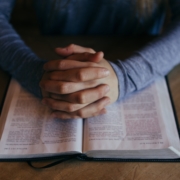
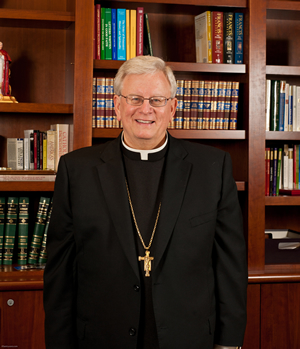
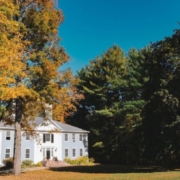
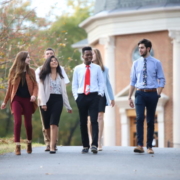
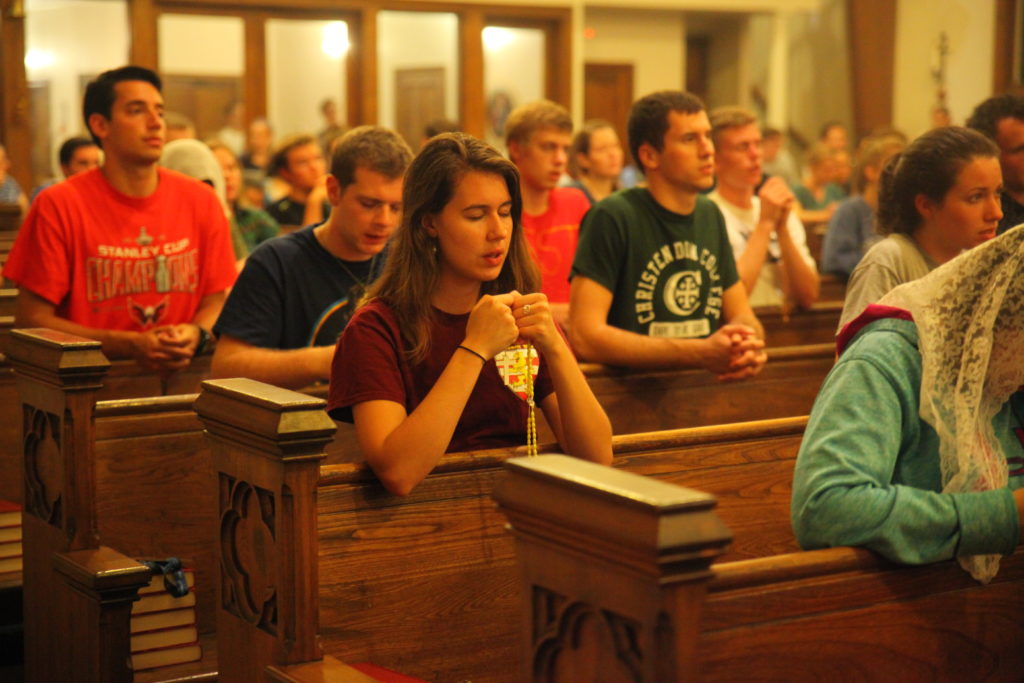
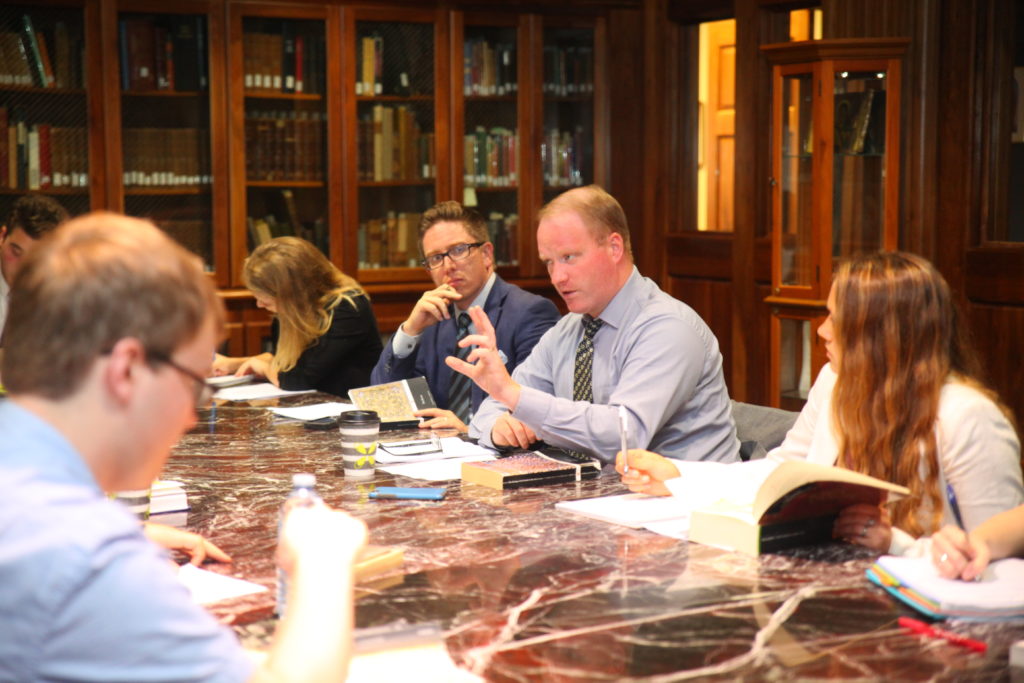
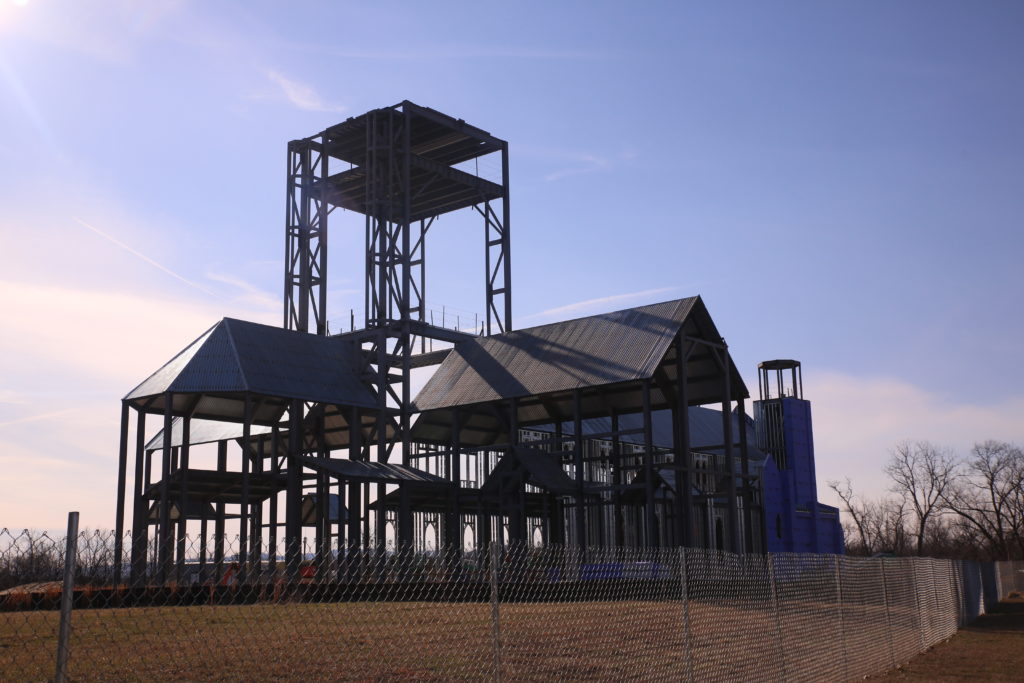
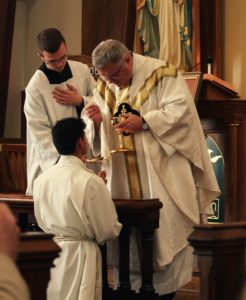
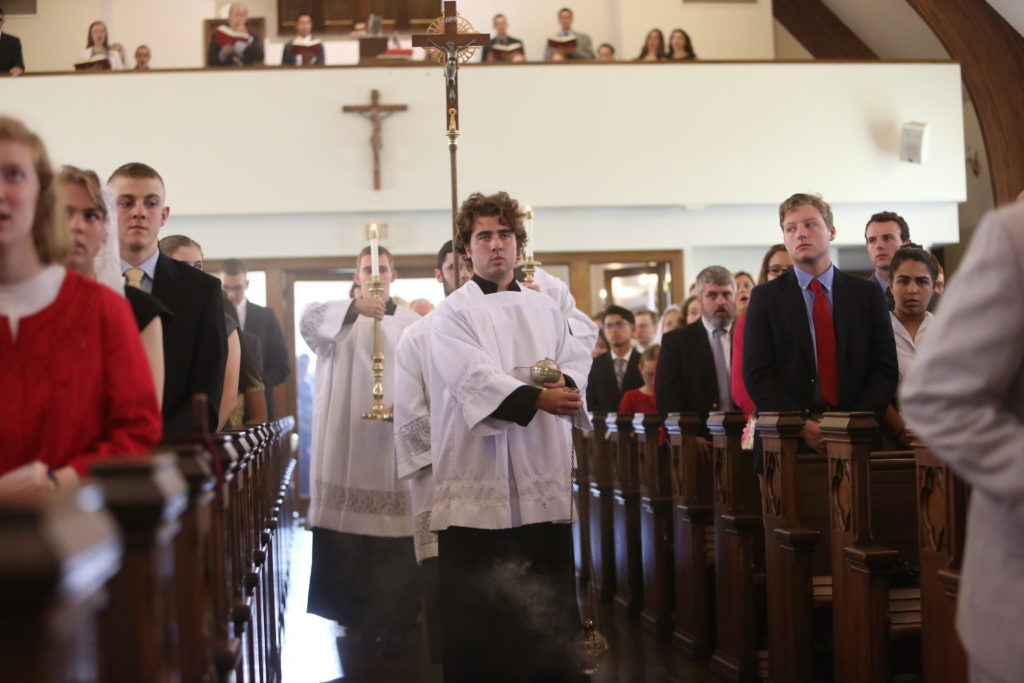

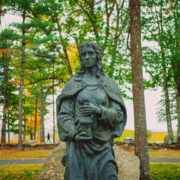
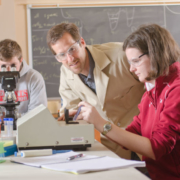
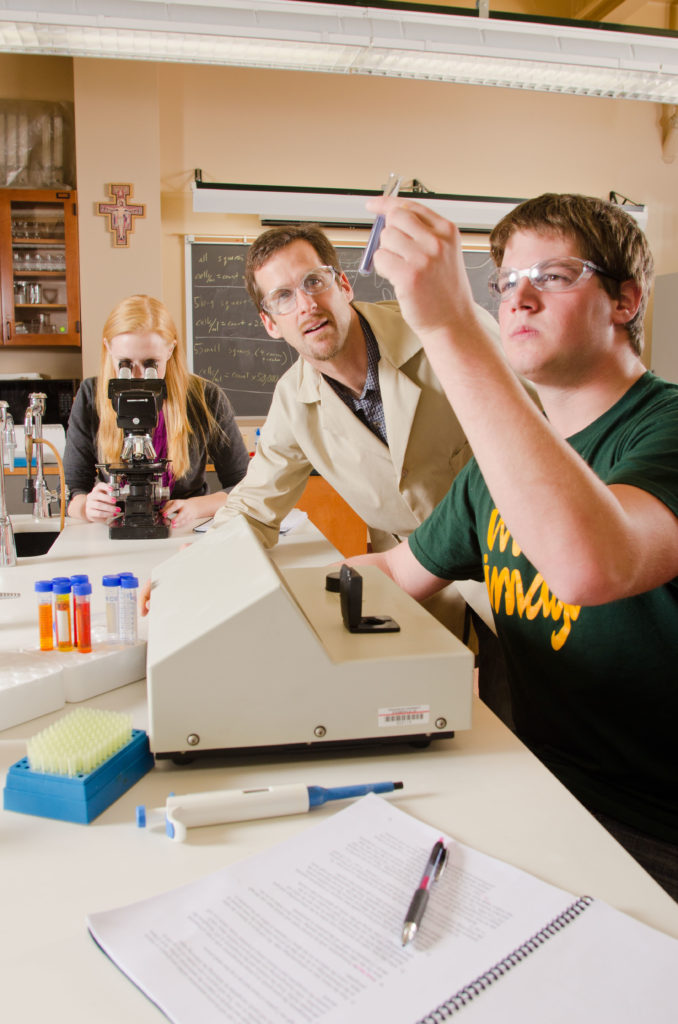
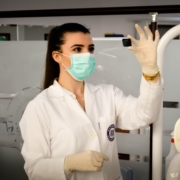
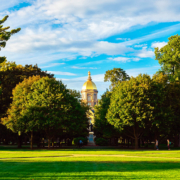 Photo by David Mark via Pixabay CC0
Photo by David Mark via Pixabay CC0